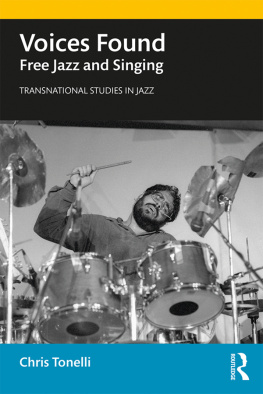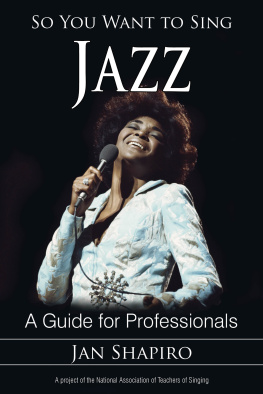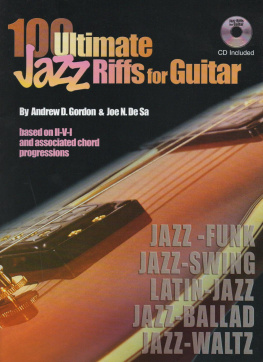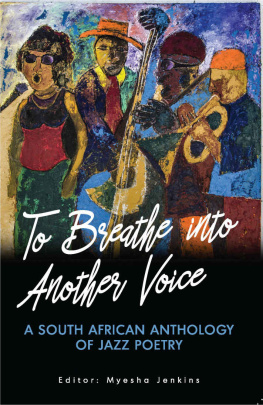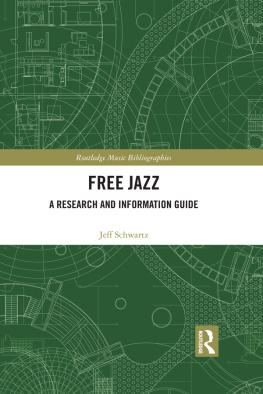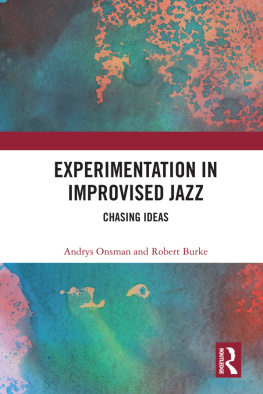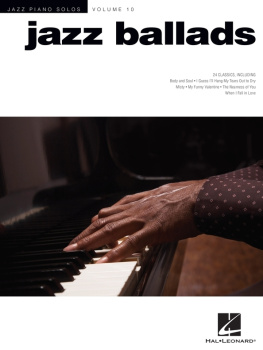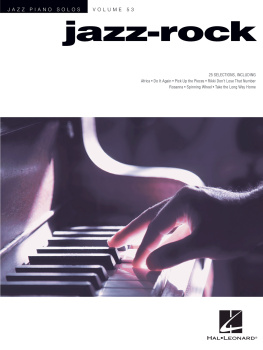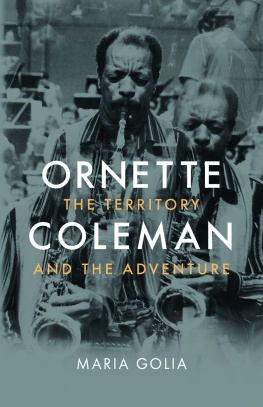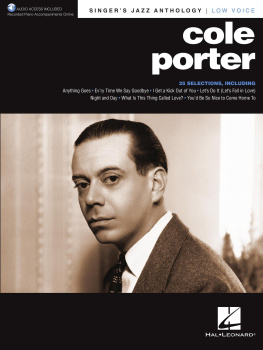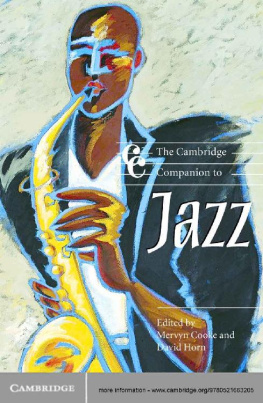VOICES FOUND
Voices Found: Free Jazz and Singing contributes to a wave of voice studies scholarship with the first book-length study of free jazz voice. It pieces together a history of free jazz voice that spans from sound poetry and scat in the 1950s to the more recent wave of free jazz choirs. The author traces the developments and offers a theory, derived from interviews with many of the most important singers in the history of free jazz voice, of how listeners have experienced and evaluated the often unconventional vocal sounds these vocalists employed. This theory explains that even audiences willing to enjoy harsh sounds from saxophones or guitars often resist when voices make sounds that audiences understand as not-human.
Experimental poetry and scat were combined and transformed in free jazz spaces in the 1960s and 1970s by vocalists like Yoko Ono (in solo work and her work with Ornette Coleman and John Stevens), Jeanne Lee (in her solo work and her work with Archie Shepp and Gunter Hampel), Leon Thomas (in his solo work as well as his work with Pharoah Sanders and Carlos Santana), and Phil Minton and Maggie Nicols (who devoted much of their energy to creating unaccompanied free jazz vocal music). By studying free jazz voice, we can learn important lessons about what we expect from the voice and what happens when those expectations are violated. This book doesnt only trace histories of free jazz voice, it makes an attempt to understand why this story hasnt been told before, with an impressive breadth of scope in terms of the artists covered, drawing on research from the US, Canada, Wales, Scotland, France, the Netherlands, and Japan.
Chris Tonelli is Assistant Professor of History and Theory of Popular Music at University of Groningen in the Netherlands.
Transnational Studies in Jazz
Series Editors
Tony Whyton
Birmingham City University, UK
Nicholas Gebhardt
Birmingham City University, UK
Transnational Studies in Jazz presents cross-disciplinary and global perspectives on the development and history of jazz and explores its many social, political, and cultural meanings.
Jazz Sells
Music, Marketing, and Meaning
Mark Laver
Austral Jazz
The Localization of a Global Music Form in Sydney
Andrew Robson
Jazz Diaspora
New Approaches to Music and Globalisation
Bruce Johnson
Voices Found
Free Jazz and Singing
Chris Tonelli
Remixing European Jazz Culture
Kristin McGee
For more information, please visit: www.routledge.com/music/series/TSJ
VOICES FOUND
Free Jazz and Singing
Chris Tonelli

First published 2020
by Routledge
52 Vanderbilt Avenue, New York, NY 10017
and by Routledge
2 Park Square, Milton Park, Abingdon, Oxon, OX14 4RN
Routledge is an imprint of the Taylor & Francis Group, an informa business
2020 Taylor & Francis
The right of Chris Tonelli to be identified as author of this work has been asserted by him in accordance with sections 77 and 78 of the Copyright, Designs and Patents Act 1988.
All rights reserved. No part of this book may be reprinted or reproduced or utilised in any form or by any electronic, mechanical, or other means, now known or hereafter invented, including photocopying and recording, or in any information storage or retrieval system, without permission in writing from the publishers.
Trademark notice: Product or corporate names may be trademarks or registered trademarks, and are used only for identification and explanation without intent to infringe.
Library of Congress Cataloging-in-Publication Data
Names: Tonelli, Chris (Chris J.) author.
Title: Voices found : free jazz and singing / Chris Tonelli.
Description: [1.] | New York : Routledge, 2019. | Series: Transnational studies in jazz | Includes bibliographical references and index.
Identifiers: LCCN 2019029762 | ISBN 9781138341029 (hardback) | ISBN 9781138341036 (paperback) | ISBN 9780429440427 (ebook) | ISBN 9780429802980 (adobe pdf) | ISBN 9780429802966 (mobi) | ISBN 9780429802973 (epub)
Subjects: LCSH: Vocal improvisation (Music) | Jazz vocalsHistory and criticism. | Free jazzHistory and criticism.
Classification: LCC ML3506 .T66 2019 | DDC 782.0165/6dc23
LC record available at https://lccn.loc.gov/2019029762
ISBN: 978-1-138-34102-9 (hbk)
ISBN: 978-1-138-34103-6 (pbk)
ISBN: 978-0-429-44042-7 (ebk)
Typeset in Bembo
by Apex CoVantage, LLC
CONTENTS
PART I
Sources
PART II
Theories
Since the 1990s, the study of jazz has changed dramatically, as the field continues to open up to a variety of disciplinary perspectives and critical models. Today, as the musics meaning undergoes profound changes, there is a pressing need to situate jazz within an international research context and to develop theories and methods of investigation that open up new ways of understanding its cultural significance and its place within different historical and social settings.
The Transnational Studies in Jazz Series presents the best research from this important and exciting area of scholarship and features interdisciplinary and international perspectives on the relationships between jazz, society, politics, and culture. The series provides authors with a platform for rethinking the methodologies and concepts used to analyze jazz and will seek to work across disciplinary boundaries, finding different ways of examining the practices, values, and meanings of the music. The series explores the complex cultural and musical exchanges that have shaped the global development and reception of jazz. Contributors will focus on studies of the music that find different ways of telling the story of jazz with or without reference to the United States and will investigate jazz as a medium for negotiating global identities.
TonyWhyton
NicholasGebhardt
Series Editors
This book would not have been possible without the support of the International Institute for Critical Studies in Improvisation (IICSI). The data was collected during my postdoctoral fellowship with IICSI, and afterwards IICSI has continued to provide important support. I am eternally grateful to the whole IICSI team, especially Ellen Waterman, Ajay Heble, Daniel Fischlin, Eric Lewis, Frederique Arroyas, Rachel Collins, Justine Richardson, Elizabeth Jackson, Richelle Forsey, Lauren Michelle Levesque, Kimber Sider, and Kim Thorne.
My deep gratitude also extends to the artists who shared their time, ideas, and sounds and supported the project in other ways. First among these is Paul Dutton, who nurtured my interest in this topic for two decades with all manner of generosity. I could not possibly thank him enough for the mentorship, friendship, and support he has given me. Fifteen years of inspiration and energy from Christine Duncan were also elemental to shaping this project. She is best kind, and I thank her for the free-flowing generosity over these years. Kindness from Tomomi Adachi for an equally long period has also played a special role in forming this project. Im glad our paths crossed as many times as they have, and Im grateful for the kindness he has shown to me. Extraordinary levels of kindness also flowed my way from Phil Minton, Maggie Nicols, David Moss, Trevor Wishart, Jaap Blonk, Gabriel Dharmoo, Ute Wassermann, Michael Edward Edgerton, and W. Mark Sutherland. They all gave more than just their time and ideas to this project, and I am grateful for the ways they have gone above and beyond. I am also sincerely thankful to Richard Armstrong, Theo Bleckmann, Thomas Buckner, Lisa Butel, Viv Corringham, Gary Diggins, Graldine Eguiluz, Soressa Gardner, Annette Giesriegl, Ayelet Rose Gottlieb, Camille Hesketh, Joane Htu, Shelley Hirsch, Anna Homler, Christine Jeffrey, Thomas Johannsen, Salome Kammer, Donna Lytle, Dafna Naphtali, Mankwe Ndosi, Helen Pridmore, Carol Sawyer, Petra van der Schoot, Fay Victor, Veryan Weston, Grace Yuen, Gerard Yun, Pamela Z, and dozens of members of Christine Duncans Element Choir and DB Boykos Voice Over Mind Choir, who were all fantastically generous for participating in this research. Another set of artists I am deeply grateful to are all the members of the various Vocal Exploration Choirs I established in Guelph, St Johns, and Groningen; we have shared wonderful moments, and I am thankful to have spent time with you all. Special thanks goes to Mack Furlong, Alison Carter, Michael Waterman, Cassondra Murray, and Kati Szego for the extra love youve put into VocalX. Finally, there are too many artists to name whose collaboration has allowed me to joyfully keep up the singing practice that has informed my perspective on this volumes topic. I am grateful to everyone Ive sung with over the past twenty years. Some have been mentioned above, but a few others I am especially grateful to are Jude Weirmeir, Fiona Chatwin, Tina Pearson, Paul Bendzsa, Guy Obrecht, and Andrew Staniland.

